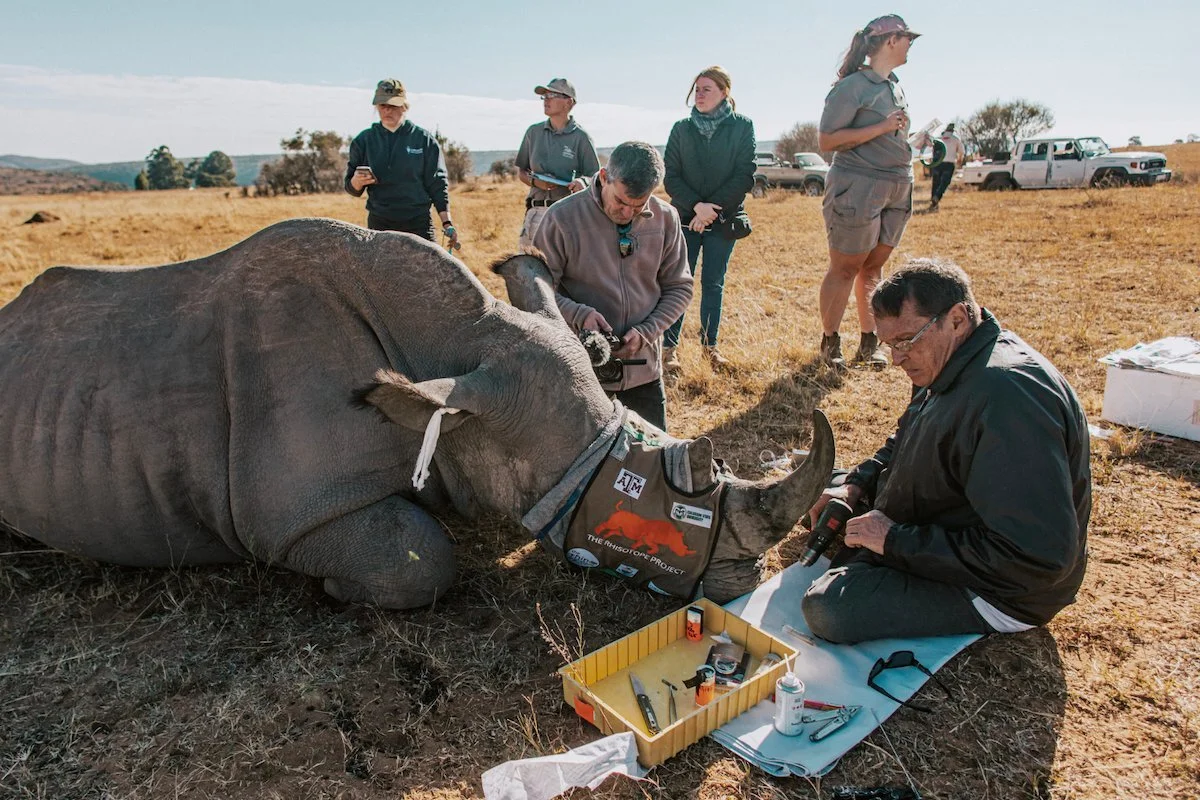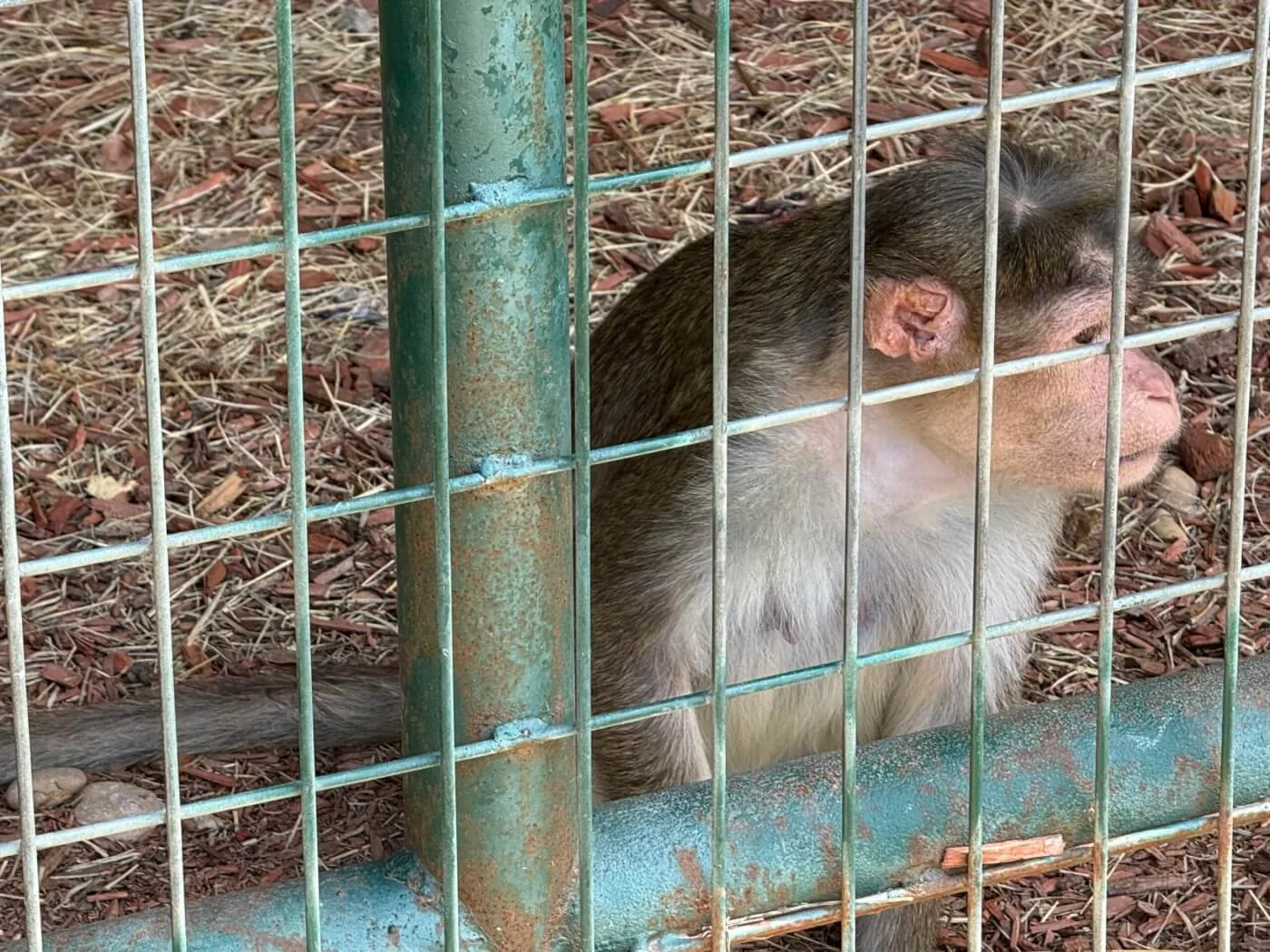Could nuclear science save rhinos from poachers?
A pioneering South African project is using radioactive tagging to protect rhinos, making horns easier to trace and harder to traffic.
Credit: The Rhisotope Project
Researchers in South Africa are working to combat poaching by injecting rhino’s horns with a radioactive material.
The Rhisotope Project, led by a team from the University of the Witwatersrand in Johannesburg, South Africa (Wits University) in collaboration with the International Atomic Energy Agency (IAEA), is inserting measured quantities of radioisotopes into the horns of live rhinos.
Scientists say this method is harmless to the African mammals, but make rhino horns detectable by radiation detectors at airports and borders, which could lead to the arrest of traffickers.
After six years of research and testing, costing $290,000, the project is ready to be implemented widely.
Credit: The Rhisotope Project
Six months ago, a pilot study embedded low levels of radioactive material into the horns of 20 rhinos living in the Unesco Waterberg Biosphere. Follow-up blood tests and veterinary checks confirmed that the radioisotope levels used caused no harm to the animals.
Using a technique known as biological dosimetry, researchers cultured blood samples and examined the formation of micronuclei in white blood cells, a proven indicator of cellular damage.
“We have demonstrated, beyond scientific doubt, that the process is completely safe for the animal and effective in making the horn detectable through international customs nuclear security systems,” said Larkin. “Even a single horn with significantly lower levels of radioactivity than what will be used in practice successfully triggered alarms in radiation detectors.”
To assess the system’s detection abilities, researchers created 3D‑printed rhino horns designed to match the shielding properties of real keratin, the organic material that makes up natural rhino horn.
“We simulated transport scenarios with the 3D-printed horns on carry-on luggage, air cargo shipments and priority parcel delivery systems and in each case, even a single horn with significantly lower levels of radioactivity than what will be used in practice successfully triggered alarms in radiation detectors,” explains Larkin.
The individual horns could even be detected inside full 40-foot shipping containers, tests showed.
South Africa, home to the largest population of rhinos in the world, continues to face high poaching rates, with 103 killed in the first three months of 2025 alone and 420 poached across the country last year, according to government figures.
This number of cases is driven by a demand for rhino horn, which is typically ground down into a powder and used in traditional medicine in parts of Asia. In the highly lucrative rhino horn trade, poachers are said to use a tranquiliser gun to sedate the rhino, before hacking off the animal’s horn. When the rhino wakes up, they slowly bleed to death.
The International Union for Conservation of Nature (IUCN) now lists white rhinos as “Near Threatened” and black rhinos as “Critically Endangered.”
"At least one animal a day is still being poached," James Larkin, chief scientific officer at the Rhisotope Project told the BBC. "I think the figures are only going to go one way if we don't watch out.... this is a significant tool to help reduce the numbers of poaching, because we're proactive rather than being reactive."
Jessica Babich, head of the Rhisotope Project, said the “goal is to deploy the Rhisotope technology at scale to help protect one of Africa's most iconic and threatened species."
"By doing so, we safeguard not just rhinos but a vital part of our natural heritage."
Discover more about the fight against rhino poaching: John Jurko is a director and producer of the film, Rhino Man, an award winning documentary which highlights the courageous field rangers who risk their lives every day to protect rhinos and our natural world. Listen to the Species Unite podcast episode with John here.
We Have A Favor To Ask…
Species Unite amplifies well-researched solutions to some of the most abusive animal industries operating today.
At this crucial moment, with worldwide momentum for change building, it’s vital we share these animal-free solutions with the world - and we need your help.
We’re a nonprofit, and so to keep sharing these solutions, we’re relying on you - with your support, we can continue our essential work in growing a powerful community of animal advocates this year.





Species Unite examines recent federal actions that threaten longstanding wildlife protections and the future of the Endangered Species Act.